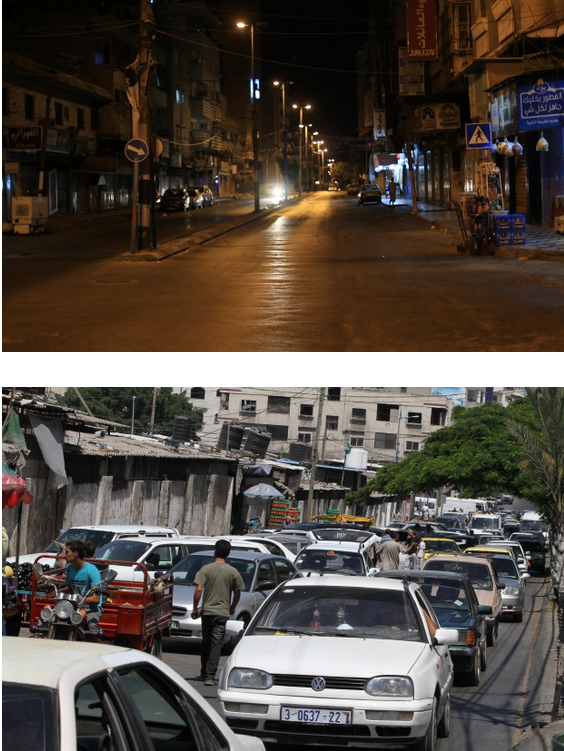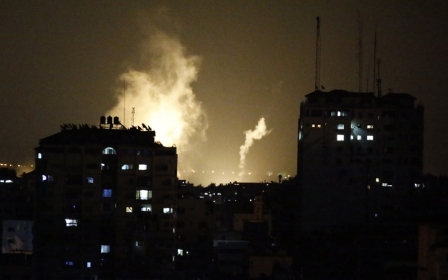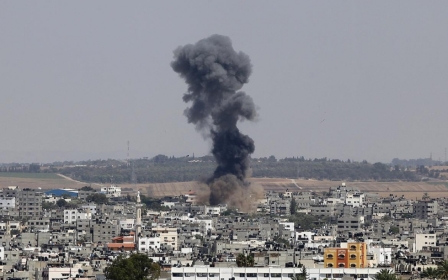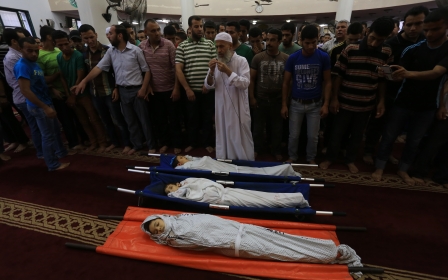The cautious silence in Gaza between the noises of war
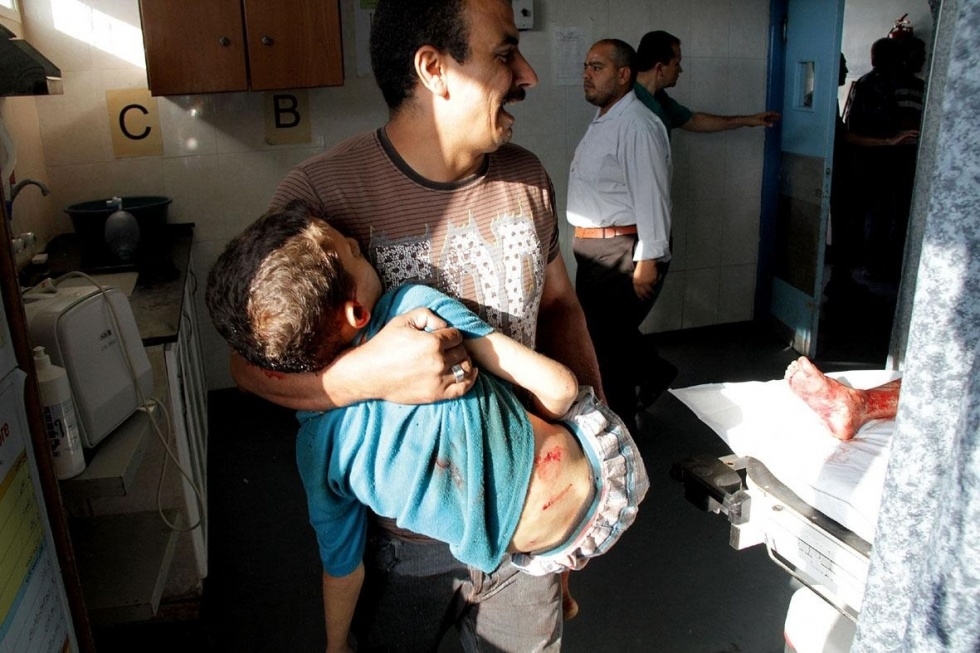
GAZA CITY - The cautious silence between the noises of war in Gaza was broken by car horns trumpeting; within a span of five hours, everyone is rushing to shops, markets, and ATM machines for money, food, water and other supplies, then to quickly check on relatives and neighbours to get news.
The five-hour humanitarian pause between Israel and Palestinian Resistance group Hamas started in Gaza Strip after 10 days of constant war.
Israeli air strikes and rocket attacks from Gaza continued until the short truce started at 10:00 a.m. local time (7:00GMT).
Several Gaza journalists have taken this chance to check on their families, some of which they have not seen over the past 10 days.
The death toll is now 249 Palestinians killed and approximately 1,880 injured, says health official Dr. Ashraf al-Qidra. The UN states that most of the casualties have been civilians. Hamas rockets have killed one Israeli and lightly injured others.
Usually, during a period of calm, Gaza’s population first inspects the damage done, then tries to find injured people in the rubble and bury their dead before visiting the mourning tents to give condolences.
A few minutes before the ceasefire began, an Israeli tank-shell hit a house in southern Gaza, killing three people, say medical sources.
“A five-hour ceasefire is not enough time for everyone to bury the dead, pay respects and prepare for the next attacks,” says 32 year-old Ashraf al-Helow. Food and water supplies have become a top priority for families, and they are growing scarce as the attacks carry on.
“It’s true, we are tired of this war, but we don’t want to go back to the situation before this war either,” he adds. Everyone around is anxiously waiting for the man selling chicken to hurry before the 5 hours end, so they get back home and take cover.
The truce has largely been respected by both sides. It was a moment where a “thirsty population could get some water into their mouths,” says Abu Zyad Hajj, a 61 year-old man, while standing in line, wearing his white Jabalyia.
“Gaza is experiencing an immensely difficult eight years under Israeli siege - that can’t and shouldn’t continue forever,” he told MEE.
He reflects that Israel is aware that its occupation and blockade is turning a whole population against it, and fostering growing support for the Palestinian Resistance. This was not the case few years ago, as tens of thousands of Palestinian workers in Israel - of which he was one - were against harming Israeli nationals.
“Until this moment, I am against the idea, but when I am about to die, and our appeals to the world fall on deaf ears, then I don’t know what to do,” he laments.
Just then, the meat seller announces that his stocks are out and his supplier can’t come because of the Israeli drones hovering over his chicken farm. Everyone else in line must go home, empty-handed.
The ceasefire - to last until 3:00 pm local time - was requested by the United Nations, with the intent to distribute supplies and aid to people seeking shelter, food, water and hygiene kits. Over 22,000 Palestinians are using UN schools as shelters, after the Israeli army warned that their homes would be a targeted by the military.
Abu Zyad wishes the 5-hour window of calm could be lengthened so he could get all he needs for his family - he feels that much worse attacks are to come after the pause.
Ground invasion
Benjamin Netanyahu, Israeli prime and defense minister, has ordered Israel’s military to begin the ground offensive on Gaza late Thursday which will come before Friday, the Muslim Sabbath.
A statement from Israel’s military said that the offensive will include, "infantry, armored corps, engineer corps, artillery and intelligence, combined with aerial and naval support."
Israel’s occupation transferred tens of thousands of troops to the Gaza border to begin the ground offensive on Gaza.
The operation, which started late Thursday, killed several people, the first victim being a 3 month-old baby boy, Fares Al-Tarabeen. His body arrived at Shifa hospital. He was still wearing his diapers.
Doctors at Abu Yousef al-Najjar hospital told MEE that scores of people were brought to hospital after breathing white poisonous gas. The patients were not able to breath and doctors were unable to treat, not knowing what kind of gas was used. People who breathed the gas screamed uncontrollably and were difficult to restrain by hospital staff. The Palestinian health ministry appealed to international groups to help deal with the crisis and help in identifying the kind of gas being used in first hour of ground invasion.
The United Nations says at least 1,370 homes have been destroyed in Gaza and more than 22,000 people displaced in the recent hostilities.
The ground invasion is expected to increase number of displaced families over the days to come.
Middle East Eye propose une couverture et une analyse indépendantes et incomparables du Moyen-Orient, de l’Afrique du Nord et d’autres régions du monde. Pour en savoir plus sur la reprise de ce contenu et les frais qui s’appliquent, veuillez remplir ce formulaire [en anglais]. Pour en savoir plus sur MEE, cliquez ici [en anglais].


